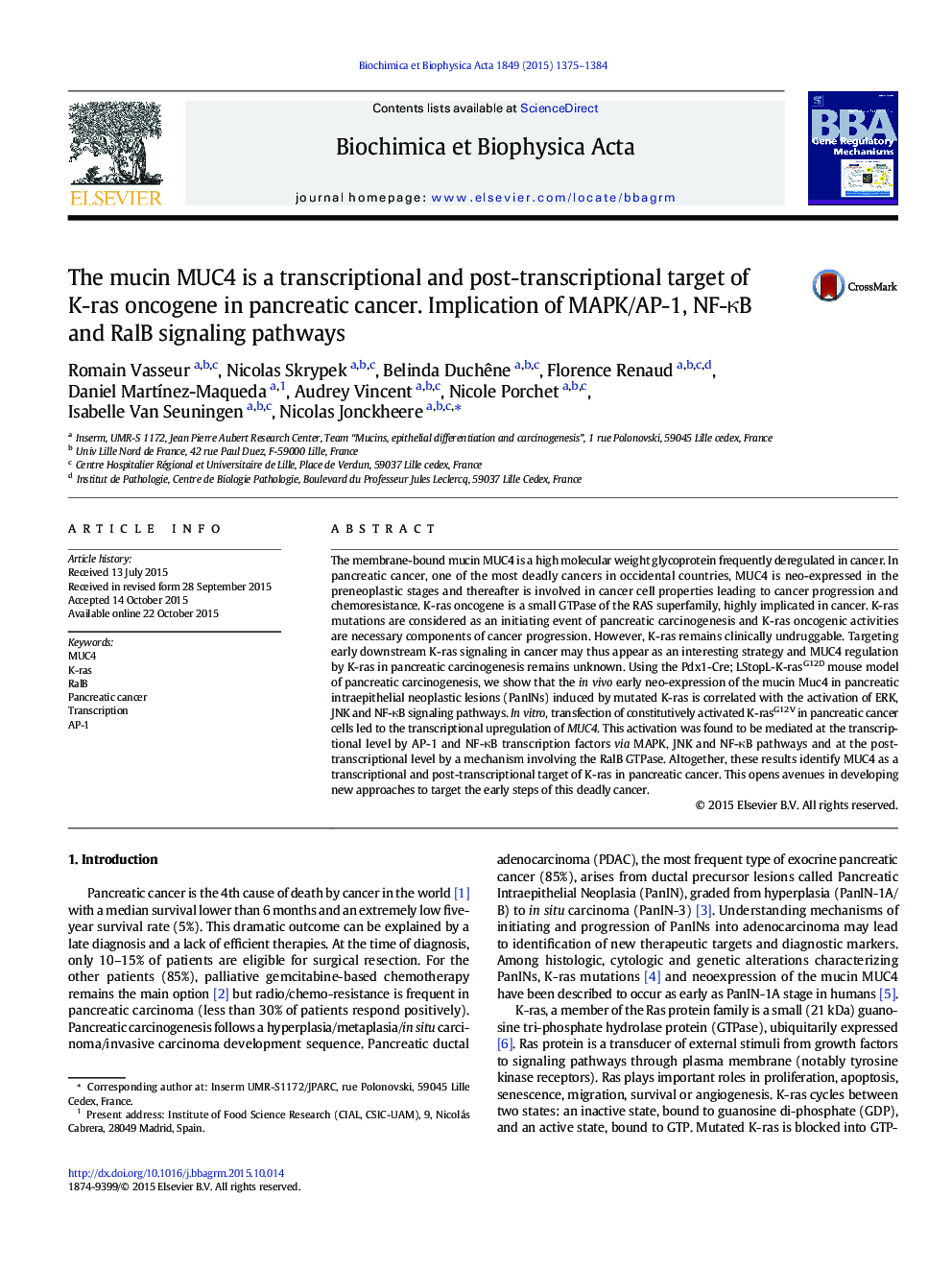| Article ID | Journal | Published Year | Pages | File Type |
|---|---|---|---|---|
| 8300449 | Biochimica et Biophysica Acta (BBA) - Gene Regulatory Mechanisms | 2015 | 10 Pages |
Abstract
The membrane-bound mucin MUC4 is a high molecular weight glycoprotein frequently deregulated in cancer. In pancreatic cancer, one of the most deadly cancers in occidental countries, MUC4 is neo-expressed in the preneoplastic stages and thereafter is involved in cancer cell properties leading to cancer progression and chemoresistance. K-ras oncogene is a small GTPase of the RAS superfamily, highly implicated in cancer. K-ras mutations are considered as an initiating event of pancreatic carcinogenesis and K-ras oncogenic activities are necessary components of cancer progression. However, K-ras remains clinically undruggable. Targeting early downstream K-ras signaling in cancer may thus appear as an interesting strategy and MUC4 regulation by K-ras in pancreatic carcinogenesis remains unknown. Using the Pdx1-Cre; LStopL-K-rasG12D mouse model of pancreatic carcinogenesis, we show that the in vivo early neo-expression of the mucin Muc4 in pancreatic intraepithelial neoplastic lesions (PanINs) induced by mutated K-ras is correlated with the activation of ERK, JNK and NF-κB signaling pathways. In vitro, transfection of constitutively activated K-rasG12V in pancreatic cancer cells led to the transcriptional upregulation of MUC4. This activation was found to be mediated at the transcriptional level by AP-1 and NF-κB transcription factors via MAPK, JNK and NF-κB pathways and at the post-transcriptional level by a mechanism involving the RalB GTPase. Altogether, these results identify MUC4 as a transcriptional and post-transcriptional target of K-ras in pancreatic cancer. This opens avenues in developing new approaches to target the early steps of this deadly cancer.
Related Topics
Life Sciences
Biochemistry, Genetics and Molecular Biology
Biochemistry
Authors
Romain Vasseur, Nicolas Skrypek, Belinda Duchêne, Florence Renaud, Daniel MartÃnez-Maqueda, Audrey Vincent, Nicole Porchet, Isabelle Van Seuningen, Nicolas Jonckheere,
